Tailored Root Canal Treatment in Singapore for Long-lasting Relief
Get safe and painless root canal treatment in Singapore with Dr Seah, a certified endodontist at Dr Seah Root Canal + Surgical Implant Clinic.

What is a Root Canal Treatment?
Root canal treatment, or endodontics, is a procedure performed by dentists to address issues within a tooth’s root. This procedure may be needed when the innermost pulp of the tooth, which contains nerves and blood vessels, becomes inflamed. This inflammation is usually caused by tooth decay or damage that allows bacteria to enter through cracks in the tooth. The main aim of a root canal treatment is to preserve the tooth’s remaining structure, without extraction, while addressing the discomfort.
Each patient’s dental condition is unique, requiring a personalised approach and understanding. To get the good results from a root canal treatment in Singapore, a registered endodontist will assess the condition and provide a tailor-made treatment plan on how to relieve your dental discomfort. Your endodontist may recommend a dental implant if it is a better-suited treatment option. In such instances, an endodontist who is experienced in root canal and dental implant surgery is ideal.
Following in the footsteps of his peers in the USA, like Dr Stephen Buchanan, Dr Seah is the first endodontist in Singapore to be trained in both endodontics and implant surgery. Dr Seah regularly performs both types of procedures.
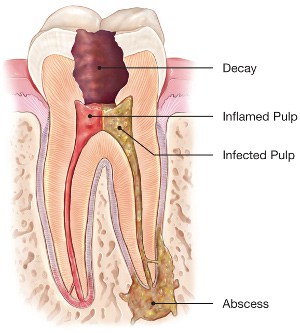
When Should You See a Root Canal Specialist in Singapore?
If you experience any of the following symptoms consider seeing a specialist to identify the problem and get the appropriate assessment and treatment:

Persistent Tooth Discomfort
You may feel consistent and severe discomfort in your face, jaw, or teeth due to inflammation in the tooth.

Chips or Cracks in the Tooth
If you notice damage to your tooth, it is best to consult an endodontist in Singapore as this may expose the nerves in the tooth and increase the likelihood of an infection.

Tooth Sensitivity
You may feel a dull ache or sharp discomfort in your teeth when you consume hot or cold food and beverages.

Swollen Gums
The inflammation of the tooth may also cause the gums to swell, feel extra sensitive or painful and ooze pus.

Loose Teeth
If your teeth begin feeling loose, it may be because of an infection. You should consult a specialist to prevent losing any teeth.

Complex cases
In cases where pain or swelling escalates quickly, patients may require urgent care. You can learn more about immediate support options from our emergency dentist in Singapore, who is trained to manage such conditions effectively.
Stages of a Root Canal Treatment

Consultation
The first step is seeing an endodontist, who is a dental specialist. They will perform several tests and scans to assess your condition and determine if a root canal is right for you. This typically includes an X-ray and a pulp vitality test, which evaluates the health of the tooth’s pulp by applying stimuli to check for a response.
Root Canal Procedure
Before the procedure, the tooth will be completely numbed with a local anaesthetic, ensuring you do not feel any discomfort. However, some individuals may opt for sedation or general anaesthesia if they are anxious or have dental phobia.
Once the tooth is numb, the endodontist places a small protective sheet called a “dental dam” over the area to isolate the tooth and keep it clean and free of saliva. An opening is then made in the crown of the tooth, and very small instruments are used to clean the pulp from the pulp chamber and root canals. The pulp chamber is then shaped to make space for the filling.
Depending on your initial symptoms, the condition of your pulp, and the complexity of the treatment, your root canal may be temporarily filled and left to settle for 1-2 weeks before placing the final filling.
Once the specialist ensures the tooth is symptom-free and ready, a permanent root canal filling is done, followed by a post-core and a crown to seal and protect the root canal-treated tooth.
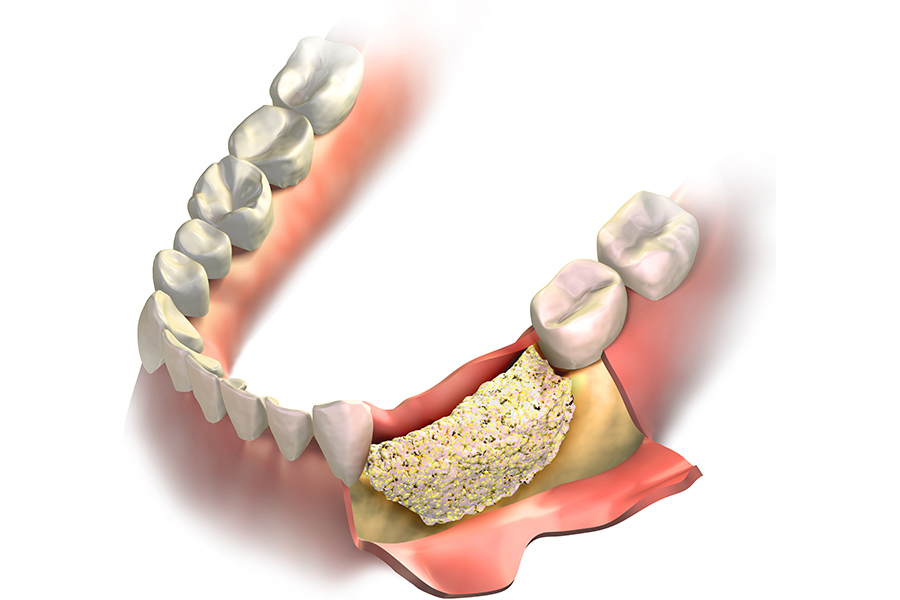

Post Root Canal Surgery
Most patients will experience some level of soreness or tenderness around the tooth and in the jaw area following root canal surgery.This pain or discomfort may take anywhere from one day to a few days to subside, depending on how quickly the patient heals and the complexity of the treatment. the patient’s rate of healing and the complexity of their case.
Your endodontist may then schedule a follow-up appointment to assess your recovery.
Benefits of Tooth Implants
Expertise and Experience
Endodontists complete specialised postgraduate training in root canal treatments as part of their accreditation in Singapore. Their role is to diagnose and treat issues within the tooth pulp and surrounding tissues. Therefore, consulting a qualified endodontist consulting a qualified endodontist reduces the risk of complications and increases the chance of better and more successful outcomes.
Proper Techniques and Equipment
Endodontists utilise specialised equipment and techniques, such as digital imaging, cone beam CT, microscopes, and ultrasonics, which improve the effectiveness of a conventional root canal treatment.
Comprehensive Diagnosis
Tooth or gum pain may be caused by a variety of reasons, so seeing a specialist is important. With their experience and training, specialists can diagnose complex cases and determine the best course of action, ensuring that all aspects of the tooth, including the root canal, are thoroughly assessed.
Pain Management
Endodontists are able to help patients manage their discomfort during and after the procedure, offering various anaesthetic options and post-treatment care.
At Dr Seah Root Canal + Implant Surgical Clinic, we aim to minimise the pain of our patients and ensure their safety with our personalised treatment solutions.
Preservation of Natural Teeth
By choosing a specialist, you will increase the likelihood of preserving your natural tooth, avoiding the need for extraction and maintaining the integrity of your dental structure.
The Cost of a Root Canal Treatment In Singapore
The cost of root canal treatment in Singapore varies widely due to factors such as the complexity of your condition, the specialist’s experience level, the type of tooth being operated on and the type of crown you choose. Please schedule a consultation visit with Dr Seah to check on the status of your tooth, as the cost will vary on a case-by-case basis.
Root Canal & Endodontic Services in Singapore
There are a range of endodontic services available to address all your dental needs.

Root Canal Treatments
Utilising specialised technology for minimal discomfort and efficient procedures.

Retreatment of Previous Root Canals
Correcting previous root canal treatments which have failed so as to give the tooth another chance to stay in the dental arch.

Endodontic Surgery
For a good prognosis on dental conditions involving cysts, persistent sinus tracts, or any other form of complex cases, specialised surgeries are required. During surgery, a biopsy can also be done to examine the tissue. In complex cases where there is bone loss, bone regenerative techniques can also be performed concurrently to save the tooth.

Cracked Teeth Solutions
Professional management and treatment of cracked teeth for better long-term dental health.
Root Canal Specialist in Singapore - Dr Seah
Dr Seah Yang Howe graduated from the National University of Singapore in 1992 with a Bachelor in Dental Surgery (B.D.S.). He then served for 2 years in the Singapore Armed Forces as a Dental Officer before serving for 3 months each in the Hospital Dental Service and the Community Dental Service.
He gained a Master’s in Endodontics (MSc Endodontics) from Eastman Dental Institute, University College London in 1996. In 2001, he was accredited by the General Dental Council in the U.K. as a Specialist in Endodontics. In 2008, the specialist register for dentists in Singapore was started. Thus, Dr Seah got his Singapore specialist accreditation in 2008 when the application was open. In addition, Dr Seah was admitted as a Fellow of the Academy of Medicine, Singapore (FAMS) in the same year.
From 2000 to 2008, Dr Seah was a partner and the main endodontist in the largest chain of dental clinics in Singapore. In November 2008, he set up the Root Canal Clinic, a clinic dedicated to excellence in root canal treatment.
Browse through our gallery to see Dr. Seah at work and some of the procedures he has performed.

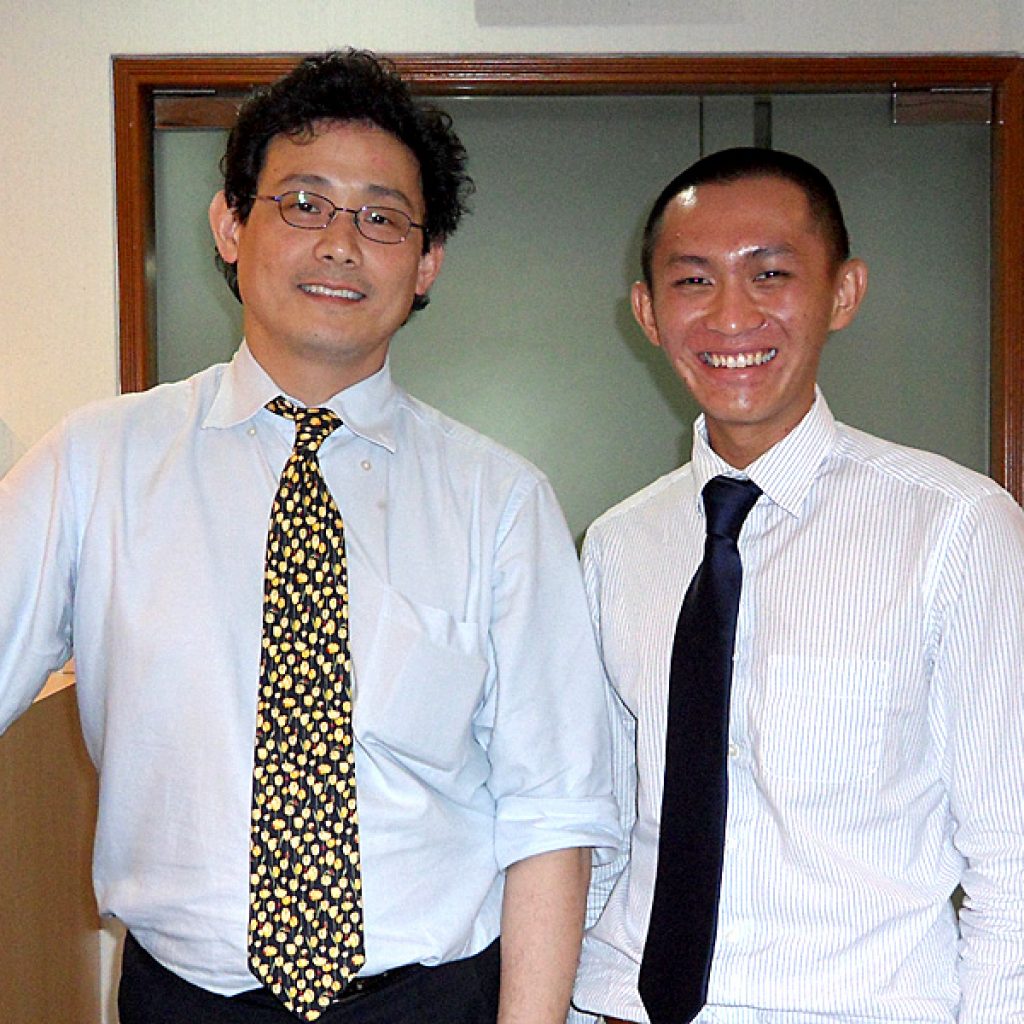

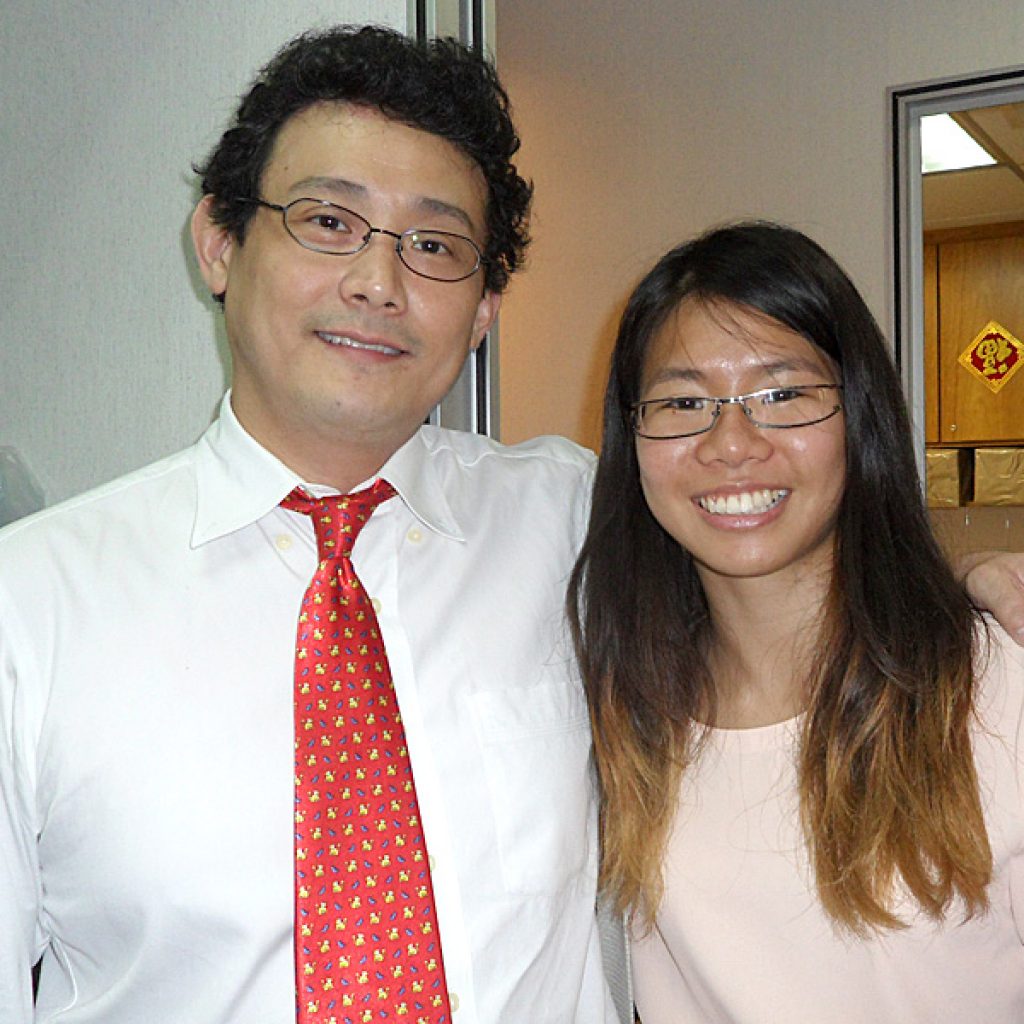


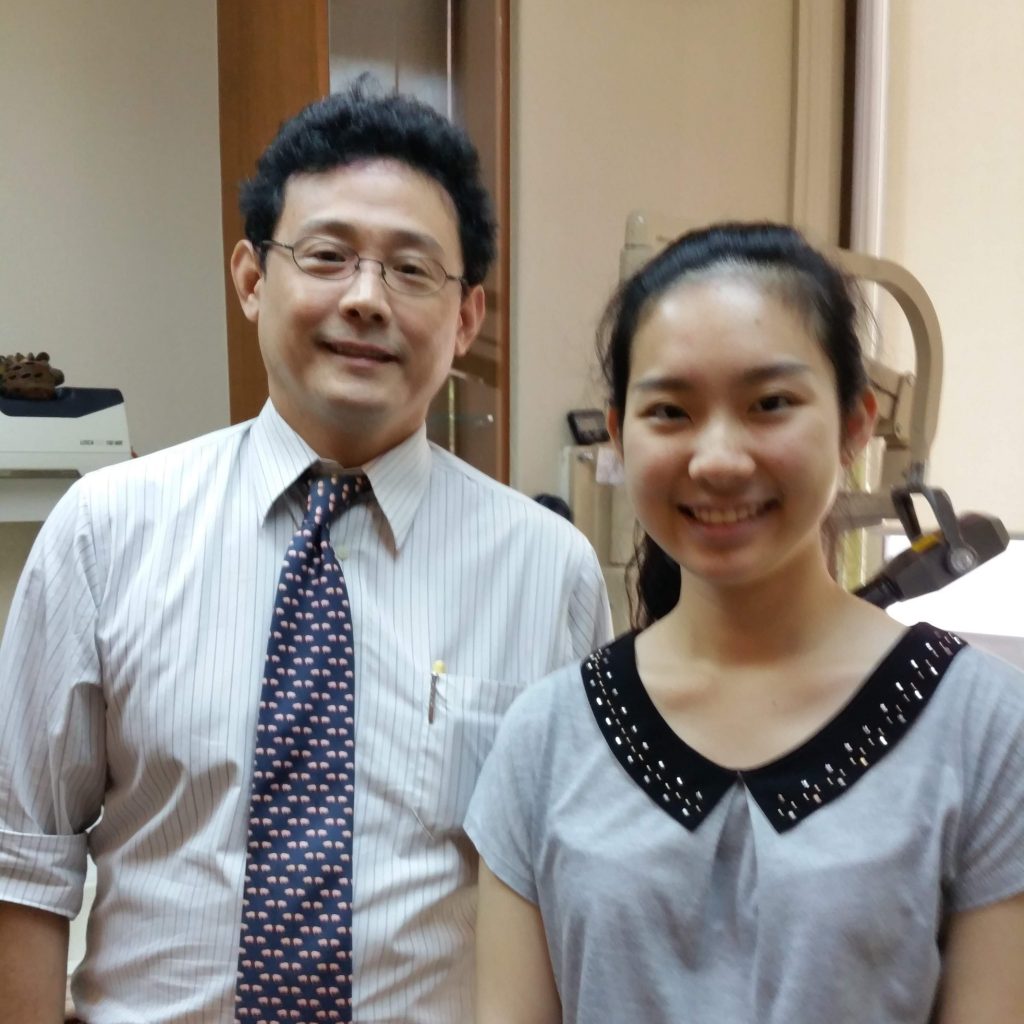
Frequently Asked Questions About Root Canal Treatments
How long does a root canal treatment take?
The duration of a root canal treatment can vary depending on the complexity of the case and the specific tooth involved. Typically, the procedure takes between 60 to 90 minutes per session. Most cases require two appointments. However, some may require more sessions if there is a severe infection.
What can I eat after the root canal treatment?
After a root canal treatment, it is advisable to avoid eating until the numbness from the anaesthesia wears off to prevent accidental biting of the cheek or tongue.
Once you are able to eat, it is generally best to stick to soft foods and avoid anything too hot or cold. Foods like yoghurt, mashed potatoes, soup, and smoothies will be ideal. You should also avoid hard, crunchy, or sticky foods that could damage the temporary filling or cause discomfort.
Is a root canal treatment painful?
A root canal treatment typically does not cause pain with the use of local anaesthesia, which numbs the affected area. Most patients report that the procedure itself is no more uncomfortable than getting a regular filling.
What is the aftercare for a root canal treatment?
Aftercare for a root canal treatment generally involves maintaining good oral hygiene, including brushing and flossing regularly. It is also important to avoid chewing on the treated tooth until a permanent crown is placed to prevent damage.
It is recommended to follow your dentist’s instructions, take any prescribed medications, and attend follow-up appointments. Additionally, if you experience severe discomfort, swelling, or signs of infection, you should contact your dentist promptly.
Can a root canal treatment be unsuccessful?
While root canal treatment has a high success rate, there are instances where it can be unsuccessful. Factors such as undetected cracks in the tooth, complicated root canal anatomy, or persistent infection may lead to failure. In some cases, additional procedures, like a retreatment or apicoectomy/root canal surgery, may be necessary to save the tooth.
What Our Patients Says
If you are in need of high-quality, professional and friendly dental care, look no further than our clinic.


